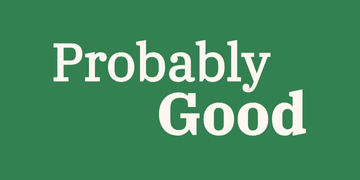For many roles, a cover letter isn’t part of the application anymore (but if it is, we’ve got advice for that, too!). Instead, you’ll often be invited to answer a few short questions. They serve a similar purpose—giving you the chance to show why you’re a great fit and why you’re excited about the role—but the format, and what works, is a little different.
Each answer typically stands on its own and might be read quickly, so it’s important to keep things clear and concise. You want to make it easy for the hiring team to see your strengths, without making them dig for the key points. When done well, your answers can highlight your alignment with the role, your enthusiasm for the organization, and the skills you bring to the table. This guide will walk you through how to approach common types of application questions, what to focus on, and how to make sure your responses come together as a cohesive and compelling application.
Why these questions matter
When you’re answering application questions, it can be tempting to treat them like a formality—something to fill in quickly so you can move on to the next step. But these responses are one of the best opportunities you’ll have to stand out, especially when your resume may look similar to dozens (or hundreds) of others.
At this stage, hiring managers are scanning applications looking for reasons to say yes or no. Thoughtful responses can make a big difference to advancing to the next stage—especially if you don’t have a traditional background or your experience isn’t a perfect match.
What hiring managers are looking for
When reviewing applications, hiring managers are trying to answer a few key questions. The goal of a strong application is to connect the dots for them—making it clear why this role makes sense for you, and why you make sense for the role. Generic applications make this harder and are easy to overlook.
Here’s what hiring managers are looking for:
- Do they understand the role and the organization?
- Are they genuinely motivated by the work?
- Can they deliver results and offer something unique?
- Does their background align with what we need?
If an application doesn’t clearly and specifically address these points, it’s easy for reviewers to move on to the next candidate.
How to write strong answers
Answer the question directly
This sounds obvious, but it’s easy to miss. Don’t paste in generic answers or cover letter content that doesn’t quite fit. Respond directly and specifically to what’s being asked. If the question is “Why are you interested in this organization?” focus on that—don’t drift into your career history.
Illustrate your fit and accomplishments
Don’t just list your skills or experiences—connect them to the role. Hiring managers are asking, “Does this make sense?” Rather than making broad claims (“I’m a great communicator”), use examples that demonstrate your abilities in action. For instance: “In my last role, I coordinated a long-term project with three departments, facilitating weekly updates that kept the team aligned and ahead of schedule.” You want to make it easy to see how your experience, strengths, and interests align with what they’re looking for.
Emphasize your enthusiasm and personal interest in the role
Plenty of candidates meet the qualifications, but fewer can explain why they care about the work. What about the role, team, or mission resonates with you? Why is this the right next step for you? You don’t need to overstate your passion, but genuine interest makes you more memorable.
Don’t just answer the question; explain your reasoning
For some questions, there’s a straightforward answer. Maybe you’re asked, “How would you prioritize these tasks?” or “What would you do if two team members disagreed on an approach?” It’s tempting to jump to a quick conclusion: “I’d do X.” But hiring managers often want more than the what—they want the why. What factors are you weighing? How do you balance competing priorities? How do you approach trade-offs or uncertainty? The more you can show your decision-making process, the more confidence they’ll have in your judgment.
Be proactive about addressing concerns
If there’s something in your application that might give a hiring manager pause—like a career switch, a gap in experience, or applying from a different location—it’s often better to address it directly rather than leave them wondering. Keep your explanation simple, positive, and focused on why you’re a strong fit for the role. You don’t need to dwell on it; just provide enough context to ease any concerns and highlight how your skills or experiences are transferable. If there’s a final open-ended question like “Is there anything else you’d like to add?”, this can be a good opportunity to address these points.
Other tips for strong responses
- Be concise and purposeful. Shorter answers often work better—they’re easier to read and remember. Stay focused on the most relevant points. If you’re repeating something from your resume, add new insight.
- Avoid clichés and gimmicks. Skip statements like “I’m the best person for this job.” Instead, show why you’re a great fit through examples and thoughtful answers. Professional, grounded responses go further than grand declarations.
- Proofread—but don’t agonize. Clear, error-free writing shows attention to detail, but don’t get stuck over-editing. Aim for responses that are thoughtful, well-edited, and sound like something you’d actually say.
Moving forward
Application questions might seem less formal than a cover letter, but they deserve just as much care. These short responses can carry a lot of weight in getting you to the next stage. By being clear, specific, and purposeful, you’ll give yourself the best chance to stand out in a competitive process.

